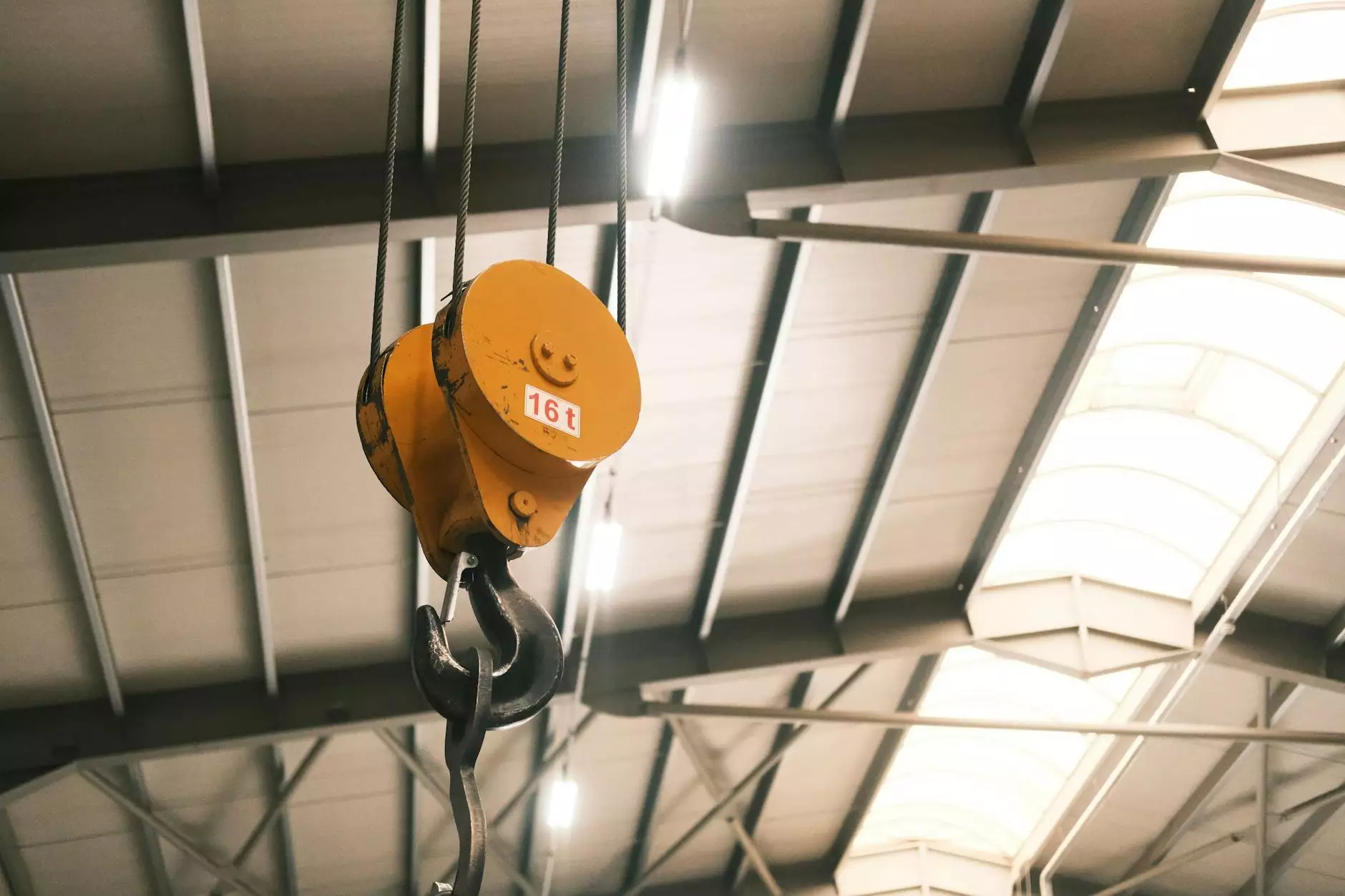The Ultimate Guide to Car Sensors: Transforming Vehicle Performance and Safety

In the rapidly evolving world of automotive technology, car sensors stand at the forefront of vehicle intelligence and safety. As vehicles become increasingly sophisticated, sensors provide real-time data to the car's engine control unit (ECU), ensuring optimal performance, fuel efficiency, and enhanced safety features. Whether you are a car enthusiast, a professional technician, or a vehicle owner seeking to understand the backbone of modern car systems, this comprehensive guide offers valuable insights into car sensors.
What is a Car Sensor? An In-Depth Explanation
A car sensor is a device that detects specific environmental or mechanical conditions within a vehicle and transmits this information to the vehicle’s integrated electronic systems. These sensors act as the vehicle’s sensory organs, continuously monitoring aspects like speed, temperature, pressure, light, proximity, and more. The data collected by these sensors allows the vehicle to react dynamically, optimize performance, and enhance safety features.
In essence, car sensors facilitate communication between the physical environment and the vehicle’s electronic systems, enabling a seamless interaction that makes modern driving safer, more efficient, and more comfortable.
Types of Car Sensors: An Overview of Key Components
Modern vehicles employ a variety of car sensors, each designed for specific functions. Here’s a detailed look at some of the most common and critical sensors found in today’s automobiles:
- Oxygen Sensors (O2 Sensors): Monitor the exhaust gases to optimize the air-fuel mixture, reducing emissions and improving fuel efficiency.
- Mass Air Flow Sensor (MAF): Measures the amount of air entering the engine to control fuel injection and optimize combustion.
- Throttle Position Sensor (TPS): Detects the position of the throttle valve, aiding in acceleration and idle control.
- Crankshaft and Camshaft Position Sensors: Determine the position of the crankshaft and camshaft for precise engine timing and synchronize fuel injection.
- Coolant Temperature Sensors: Monitor engine temperature to adjust fuel mixture and manage engine cooling systems.
- Vehicle Speed Sensors: Measure the speed of the vehicle, used in ABS, traction control, and cruise control systems.
- Brake Pedal Sensors: Detect when the brake is applied, enabling safety features like automated braking and cruise control deactivation.
- Parking Sensors: Utilize ultrasonic or electromagnetic technology to assist in parking, preventing collisions with obstacles.
- Tire Pressure Sensors: Monitor tire inflation pressure, alerting drivers of potential under-inflation hazards.
- Light Sensors: Automatically switch headlights on and off, or adjust interior lighting based on ambient light conditions.
- Rain Sensors: Detect rain on the windshield to activate wipers automatically for improved driving visibility.
The Critical Role of Car Sensors in Modern Vehicles
Understanding the significance of car sensors helps appreciate how they contribute to vehicle safety, efficiency, and overall performance:
Enhancing Safety Features
Many safety systems are directly dependent on sensor data. For instance, Anti-lock Braking Systems (ABS), Electronic Stability Control (ESC), and Collision Avoidance systems rely on inputs from sensors like wheel speed sensors, proximity sensors, and radar sensors. Accurate sensor data ensures these systems respond swiftly and correctly, potentially preventing accidents.
Optimizing Fuel Efficiency and Emissions
By providing real-time data on engine operation, air intake, exhaust gases, and fuel consumption, car sensors enable the engine control unit to fine-tune parameters, resulting in fuel savings and reduced emissions. Sensors like oxygen sensors and MAF sensors are especially vital to achieving environmental compliance and operational efficiency.
Improving Driving Comfort and Convenience
Sensors such as parking sensors, rain sensors, and light sensors automate routine tasks that enhance driver comfort. Automatic headlight activation, adaptive cruise control, and parking assistance are all made possible through the clever deployment of various sensors.
Enabling Diagnostics and Maintenance
Modern vehicles feature onboard diagnostics (OBD) systems that rely on sensors to monitor system health. When a sensor detects abnormal conditions, it triggers warning lights or alerts, guiding drivers or technicians to address issues before they escalate into costly repairs.
How Car Sensors Improve Vehicle Reliability and Longevity
Reliable car sensors are fundamental in maintaining vehicle health. Well-maintained sensors ensure the engine runs optimally, prevent unnecessary wear and tear, and help identify issues early through diagnostic trouble codes (DTCs). Accurate sensor data reduces engine strain, optimizes fuel and oil consumption, and extends vehicle lifespan.
Selection and Maintenance of Top-Quality Car Sensors
Choosing the right car sensor is crucial. Factors to consider include compatibility with your vehicle make and model, sensor accuracy, durability, and manufacturer reputation. To maintain sensor performance:
- Regular Inspection: Periodically check sensors for dirt, corrosion, or damage.
- Proper Cleaning: Use recommended cleaning agents and procedures to remove debris or grime.
- Timely Replacement: Replace sensors that show signs of malfunction or have failed diagnostic tests.
- Professional Diagnostics: Use specialized tools to read error codes and verify sensor functionality.
Expert Tips for Installing and Upgrading Car Sensors
For optimal results, professional installation is recommended, especially for critical sensors related to safety systems. When upgrading car sensors:
- Ensure compatibility with your vehicle model and electronic control units.
- Opt for sensors manufactured by reputable brands or OEM parts for longevity and accuracy.
- Follow manufacturer guidelines during installation, avoiding mishandling that could damage delicate components.
- Consider sensor calibration after installation to ensure precise functioning.
The Future of Car Sensors: Innovations and Advancements
The automotive industry is rapidly innovating, and car sensors are at the heart of this revolution. Emerging technologies include:
- LiDAR and Radar Sensors: Enhancing autonomous vehicle navigation and collision avoidance.
- Infrared Sensors: Improving night vision and pedestrian detection.
- Miniaturization and Integration: Making sensors more compact, multi-functional, and easier to install.
- AI-Enabled Sensors: Allowing predictive maintenance and smarter decision-making capabilities.
With these innovations, vehicles are becoming smarter, safer, and more environmentally friendly, largely thanks to the continuous evolution of car sensors.
Where to Source Car Sensors? Trustworthy Supplies at 1autoparts.com
For premium quality car sensors and reliable automotive parts, 1autoparts.com is your ultimate destination. We specialize in providing a comprehensive range of sensors for various vehicle makes and models, ensuring:
- Authentic OEM and high-quality aftermarket sensors
- Competitive prices
- Expert guidance for selection and installation
- Fast shipping and excellent customer support
Conclusion: Embracing the Power of Car Sensors for a Smarter Drive
In summary, car sensors are indispensable components that significantly enhance a vehicle’s performance, safety, and longevity. From fuel efficiency to collision prevention, these tiny but vital devices form the foundation of modern automotive innovation. Investing in quality sensors from trusted suppliers like 1autoparts.com ensures that your vehicle remains reliable and efficient for years to come.
As automotive technology continues to advance, the importance of car sensors will only grow. Staying informed about their roles, types, and the latest innovations empowers you to make smarter choices and enjoy a safer, more comfortable driving experience.









